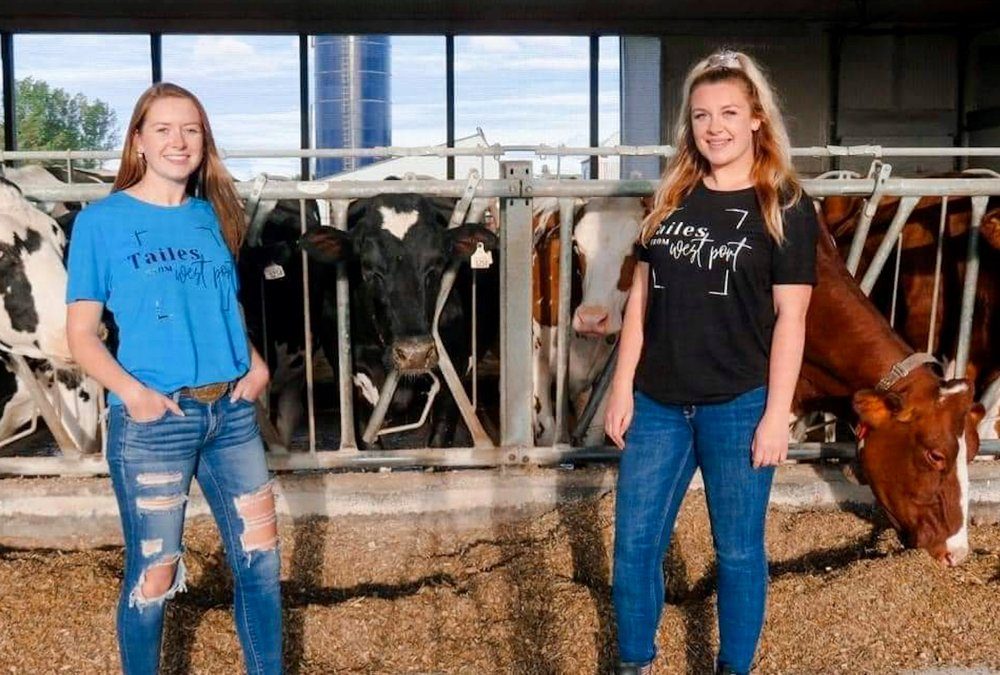Local ag education turned virtual during COVID-19

A virtual on-line format has allowed locally driven agriculture education programs to reach classrooms across the province.
COVID-19 put a halt to school attendance and many regularly scheduled events, including Bite of Brant, an agriculture awareness program for Grade 5 students across Brant County.
Last year would have marked the 25th anniversary for Bite of Brant but the two-day event was cancelled when COVID-19 struck one month before it was scheduled.
Why it matters: Agriculture awareness programs that adapted to the new normal with COVID-19 brought new opportunities to teach Ontario youth about agriculture.
For 2021, the Bite of Brant committee created a series of videos showing virtual tours of Brant County farm operations and offered live questions and answers between students and farmers over a virtual platform.
“It was a suggestion that was made by one of our committee members. It was a very hectic five weeks of planning, but it happened and was very successful,” says Jean Emmott, chair of the Bite of Brant committee.
Tours featured dairy, beef, chicken, sheep, grain and fruit operations. Most videos were shot by a committee volunteer, while others were submitted by farmers.
Emmott says they were able to reach 49 classrooms over the four-day virtual event, nine more than their usual 40 classrooms when done live.
It gave students the opportunity to see farm businesses first-hand, which is valuable because many students are four or five generations removed from agriculture.
Huron Perth Agriculture and Water Festival, a two-day agriculture education event that typically reaches 400-500 students in Grades 3 to 5, cancelled the 2020 event even before COVID-19 sent students home.
“We had to cancel last year already due to the rotating strikes. It was the end of February when we finally called it because if schools happened to be striking [during our event in April] they weren’t going to be able to come,” says festival coordinator Johanna Hayes.
“It was a lot of expense to put out without a guarantee of people even being able to come.”
By September 2020, Hayes says she was planning an altered event in 2021 given continued COVID-19 restrictions. The committee, made up of industry members and Ontario marketing board members, decided to share virtual programs through a website.
“A lot of the programs had already gone to virtual access. They had already created virtual opportunities through their organizations, so it became a much easier process because we were able to just copy and paste,” says Hayes.
A letter explaining the virtual access was sent to school boards, which informed the teachers.
Durham Farm Connections’ primary program normally welcomes 1,200 Grade 3 students from the Durham region to learn about agriculture. The three-day event, normally held in April, was also cancelled in 2020 due to COVID-19.
The organization now shows virtual farm tours of farm businesses within the region on its Facebook page.
The first video was posted on March 18. Carolyn Puterbough, a volunteer with the organization, says the goal was to replace the open house, which usually attracted about 1,000 people.
“Last time I checked we had reached 24,000 people through our Facebook live tours of these farms,” she says.
There are 21 tours booked, one for each week from now to the end of November.
The program works with producers to create short videos of local farm businesses that will be specifically aimed at the Grade 3 curriculum and posted to YouTube.
“We’ve [also] worked with AgScape to get some curriculum linked support materials that we can provide to the teachers as well,” says Puterbough.
Durham Farm Connections attracts several thousand people to the live event, she added, but virtual platforms may provide an opportunity to reach even more.
Although there were challenges for all organizations, each said they would like to incorporate virtual learning even after Ontario can return to in-person learning.
The Bite of Brant committee may send farm tour videos ahead of the event next year to allow students to prepare questions for the (hopefully) in-person experience.
Water festival organizers say they would like to continue to offer some programming through the internet.
“We might be making this a permanent part of our festival, having it accessible online for those who can’t make it in person,” says Hayes. The in-person program only offers access to 24 groups.
The virtual platforms have provided opportunities for the participants but there is a different aspect with in-person learning.
“They don’t get a true experience because the experience comes from being in the building with the group and seeing some of the tools, putting your hands on them, petting the cow. It makes it much more real and that’s just lost on the computer,” says Hayes.
Source: Farmtario.com

